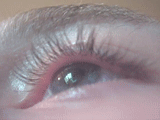Benign fasciculation syndrome
Editor-In-Chief: Prab R Tumpati, MD
Obesity, Sleep & Internal medicine
Founder, WikiMD Wellnesspedia &
W8MD medical weight loss NYC and sleep center NYC
| Benign fasciculation syndrome | |
|---|---|
| Synonyms | N/A |
| Pronounce | N/A |
| Specialty | N/A |
| Symptoms | Muscle twitch |
| Complications | N/A |
| Onset | Any age, commonly in adulthood |
| Duration | Chronic |
| Types | N/A |
| Causes | Unknown |
| Risks | Stress, caffeine |
| Diagnosis | Clinical diagnosis |
| Differential diagnosis | Amyotrophic lateral sclerosis, Multiple sclerosis, Peripheral neuropathy |
| Prevention | N/A |
| Treatment | Reassurance, stress management, magnesium supplements |
| Medication | N/A |
| Prognosis | Good |
| Frequency | Common |
| Deaths | N/A |
Benign fasciculation syndrome (BFS) is a neurological disorder characterized by fasciculation (twitching) of various voluntary muscles in the body. The twitching can occur in any voluntary muscle group but is most common in the eyelids, arms, legs, and feet. Even the tongue can be affected. The twitching may be occasional or may go on nearly continuously.
Symptoms
The primary symptom of BFS is involuntary twitching of various muscle groups. Other symptoms may include fatigue, exercise intolerance, and muscle pain, which can be severe in some individuals. The twitching and other symptoms may be exacerbated by anxiety, stress, and physical activity.
Causes
The exact cause of BFS is unknown. However, it is believed to be due to hyperexcitability of the nerves that stimulate the muscles. This can be triggered by various factors, including stress, anxiety, and physical activity.
Diagnosis
BFS is diagnosed based on the presence of the characteristic symptoms and the exclusion of other conditions that can cause similar symptoms, such as Amyotrophic lateral sclerosis (ALS) and Multiple sclerosis (MS). This may involve a thorough medical history, physical examination, and various diagnostic tests, such as electromyography (EMG) and nerve conduction studies.
Treatment
There is no cure for BFS, but the symptoms can be managed with medication and lifestyle changes. Medications used to treat BFS include beta-blockers, anti-seizure drugs, and anti-anxiety drugs. Lifestyle changes may include stress management techniques and regular exercise.
Prognosis
The prognosis for individuals with BFS is generally good. The condition is not life-threatening and does not lead to other neurological disorders. However, the symptoms can be bothersome and may interfere with daily activities.
See also
Transform your life with W8MD's budget GLP-1 injections from $125.
W8MD offers a medical weight loss program to lose weight in Philadelphia. Our physician-supervised medical weight loss provides:
- Most insurances accepted or discounted self-pay rates. We will obtain insurance prior authorizations if needed.
- Generic GLP1 weight loss injections from $125 for the starting dose.
- Also offer prescription weight loss medications including Phentermine, Qsymia, Diethylpropion, Contrave etc.
NYC weight loss doctor appointments
Start your NYC weight loss journey today at our NYC medical weight loss and Philadelphia medical weight loss clinics.
- Call 718-946-5500 to lose weight in NYC or for medical weight loss in Philadelphia 215-676-2334.
- Tags:NYC medical weight loss, Philadelphia lose weight Zepbound NYC, Budget GLP1 weight loss injections, Wegovy Philadelphia, Wegovy NYC, Philadelphia medical weight loss, Brookly weight loss and Wegovy NYC
|
WikiMD's Wellness Encyclopedia |
| Let Food Be Thy Medicine Medicine Thy Food - Hippocrates |
Medical Disclaimer: WikiMD is not a substitute for professional medical advice. The information on WikiMD is provided as an information resource only, may be incorrect, outdated or misleading, and is not to be used or relied on for any diagnostic or treatment purposes. Please consult your health care provider before making any healthcare decisions or for guidance about a specific medical condition. WikiMD expressly disclaims responsibility, and shall have no liability, for any damages, loss, injury, or liability whatsoever suffered as a result of your reliance on the information contained in this site. By visiting this site you agree to the foregoing terms and conditions, which may from time to time be changed or supplemented by WikiMD. If you do not agree to the foregoing terms and conditions, you should not enter or use this site. See full disclaimer.
Credits:Most images are courtesy of Wikimedia commons, and templates, categories Wikipedia, licensed under CC BY SA or similar.
Contributors: Prab R. Tumpati, MD


